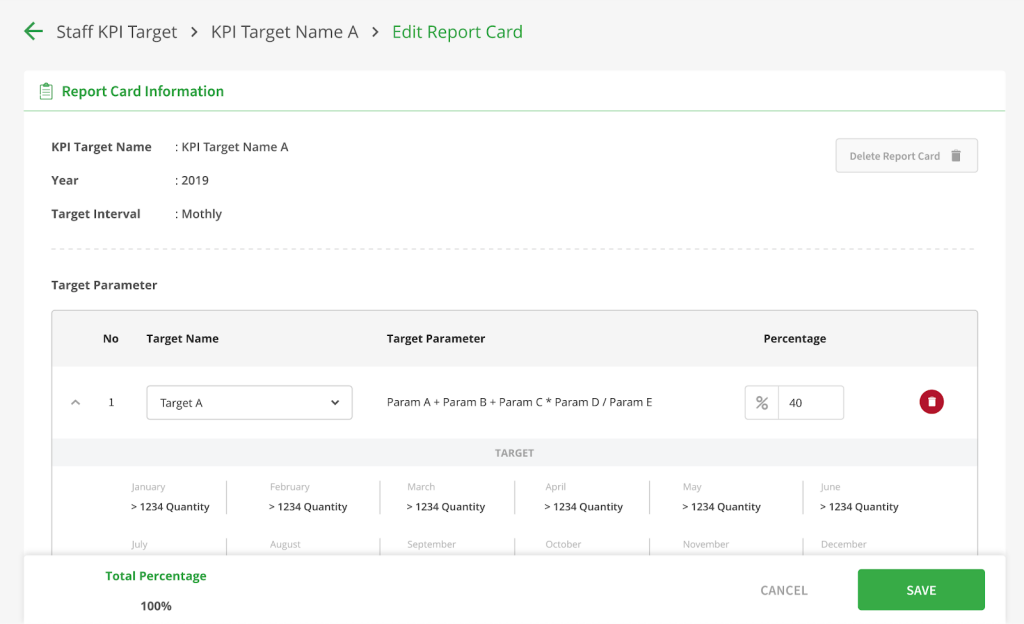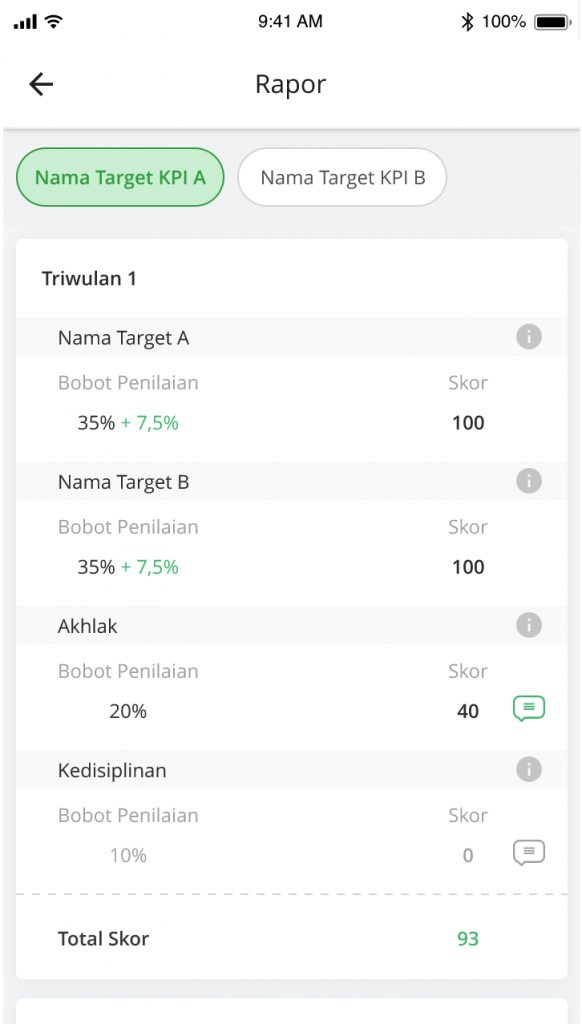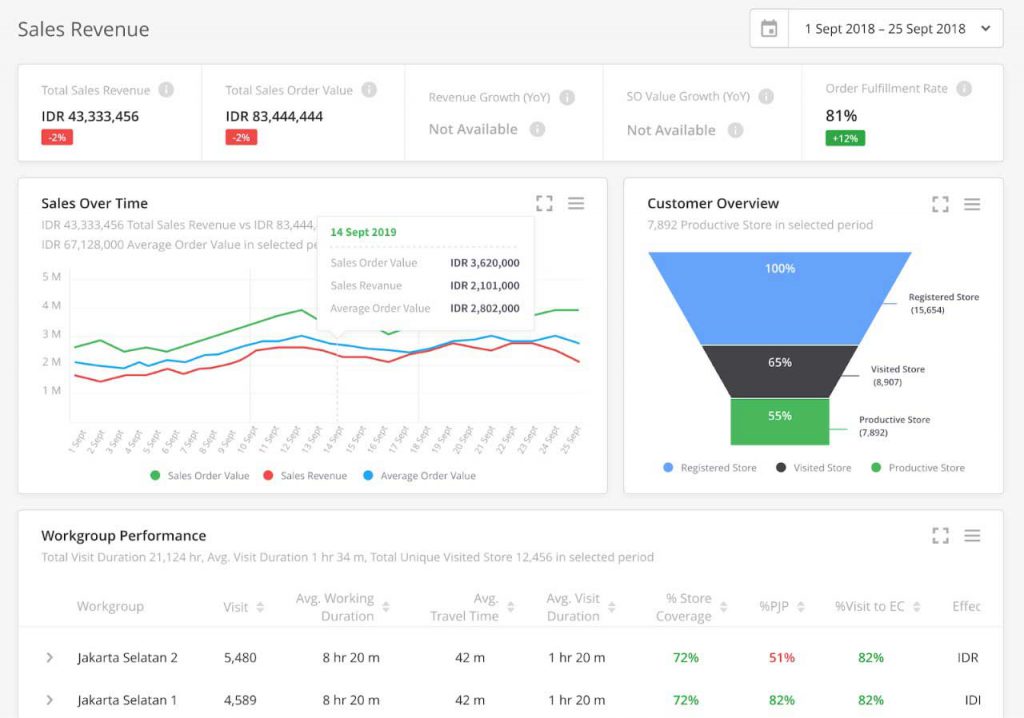
Table of Contents
5 Things You Should Include in Your 2020 Salesman Performance Review
The 2020 pandemic has forced many companies to re-evaluate their business processes, one of which is a salesman performance review. This disruption caused significant changes in the market and customer demand. Suddenly, the company’s KPI target strategy that has been estimated from the previous few years becomes irrelevant.
Company employees must also comply with the COVID-19 health protocol which limits face-to-face in-person meetings between supervisors and teams. Therefore, many companies must start evaluating employees with a more dynamic performance appraisal method to consider the pandemic situation.
1. Quantitative Metrics from Salesman’s Daily Activities
KPI (Key Performance Indicator) is a management indicator system that aims to motivate the company and its employees. KPIs are measurable and need to be agreed in advance to reflect the company’s level of achievement. With activity-based metrics, companies can filter and provide objective feedback for employees in achieving their targets.
Employee performance review metrics can be gathered from their daily activities. Such as the number of shop visits, product orders, new outlet registrations (NOO), and others can be collected and assessed into the target parameters of each employee.

As a supervisor or manager, you need to know which KPIs are important to the company and how to track them effectively. System management tools like Advotics can make it easy for employees to monitor their performance and all target metrics.
Apart from monitoring and recording all salesman activities, the system can also adjust KPI parameters according to the period, area, employees or other variables. An adjustable KPI target is very important, especially when business conditions fluctuate due to a pandemic.
For a more optimal performance appraisal, companies can also hold them more frequently with short-term targets to facilitate uncertain business conditions. KPI targets can be set from annual to quarterly, from quarterly to monthly.
2. Qualitative Soft Skill Assessment
However, quantitative targets alone are not sufficient. Sales teams also need good soft skills to become great salesmen. Therefore, managers must always provide constructive feedback to improve salesman performance without making them lose their confidence.
Assessing employee soft skills is not easy. However, some soft skills are important for the development of a company’s business, for example:
- Strong relationship management with clients
- Good time management
- Critical thinking and quick adaptation in problem-solving
- Innovative and technology savvy
- Collaborative with other employees
- Ambitious and self-motivated
Soft skill performance can be assessed through a survey form filled out by direct supervisors, fellow employees, or even from a customer satisfaction form. An alternative source of employee soft-skill assessment becomes important especially when a direct 1-on-1 interaction between supervisor and team is limited. To wrap things up, all soft-skill metrics reports can be combined with quantitative metrics from KPIs to assess the overall performance of the employee.
3. Transparent Platform for Self-Service Target Review
Performance appraisals are usually done most often per quarterly or trimesterly, therefore, salesmen cannot just rely on waiting for the performance report to monitor their own KPI targets.


With the Advotics system, not only supervisors and managers can view performance data. Employees can also see their own KPI progress from their mobile application so that they can motivate themselves more often to be more ambitious in achieving targets.
4. Visual Dashboard for All Metrics
Sometimes, supervisors and managers need to look at specific metrics to fix the problems they are currently facing. Often, they will also need to conclude a strategy statement based on all the metrics that have been gathered. This is why companies need a metric system that is scalable in real-time so that supervisors and managers can monitor sales performance at a glance.

The visibility of the metrics in Advotics’ dashboard can be adjusted to simplify the dashboard and track the metrics that are most important to companies. This can make it easier for you to visualize the right data to assess team performance and overall company performance.
In addition, Advotics dashboard can also see the total number of sales, customer information, sales or distributor workgroup performance per area, employee attendance, product insights, customer monthly retention, and more. By applying a period filter, you can modify the report according to the selected date. Advotics system aims to help companies see the data they need quickly and clearly.
Read more: Why is Distribution Performance Management Important?
5. Find Pain Points and Make Failure Part of Success
Even with the most sophisticated systems and high employee ambitions, sometimes you can’t completely avoid failure. Instead, you should accept it and involve the sales team in the process of finding a solution through combining all databases.
Some sales pain points will stand out more clearly than others, others will not. The hardest one to crack is often the most difficult and has the greatest effect on sales performance. For example, if the sales team’s performance is still wasted on administrative tasks, it is possible that they have not used system management tools and other automation system operations to their full potential.



